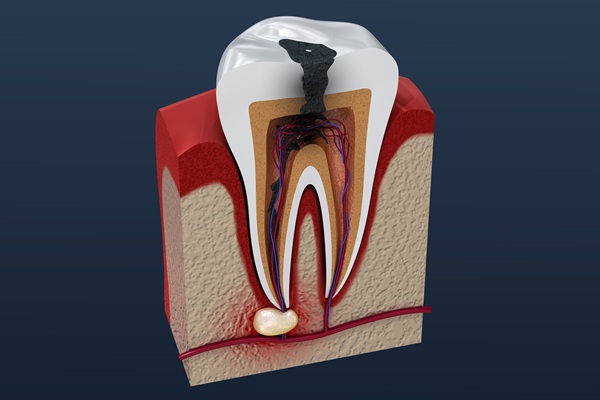Can Laser Dentistry Treat Periodontal Disease?

Laser dentistry continues to become more common in dental offices across the country. This form of care can help maintain strong, healthy teeth and gums. To battle gingivitis and periodontal disease, you do not have to endure traditional invasive procedures. By using a laser, your dentist can remove the bacteria and buildup causing you pain and irritation.
An explanation of gum disease
Periodontal disease occurs when bacteria damage the soft tissue of the gums. Without effective treatment, this condition can lead to bone loss. Eventually, the person’s teeth could become loose and fall out. Poor oral health habits contribute to gum disease. A lack of brushing and flossing causes plaque and tartar to build up on teeth and on the gumline. This can create pockets of bacteria and pus, inflaming the gums and causing them to bleed.
When to see the dentist
It is important to discuss laser dentistry options with the dentist when a patient’s gums bleed frequently. This may often happen while brushing teeth or eating. Swollen and painful gums are a good indication that the person has periodontal disease. The individual may also have bad breath or loose teeth. If these conditions exist, the patient should call the dentist right away to explore treatment possibilities.
How laser dentistry can help with gum disease
The chief approach to treating periodontal disease is to clean the teeth and gums. The dentist will remove the plaque, tartar and infection to help the gums heal. With lasers, the dentist can access the pockets of infection, killing it. Next, the dentist removes the plaque and tartar with a laser instead of with hand tools. The dentist can select the appropriate wavelength of the laser for the patient. This method also fosters new growth of tissue and bone in the affected area.
Limited bleeding
One of the consequences of gum disease is consistent bleeding of the soft tissue. Traditional treatments such as scaling and root planing require the dentist to scrape buildup from the teeth and roots. This can be painful and irritate the gums. With laser dentistry, the patient should experience less bleeding. It can also limit the amount of swelling in the gums.
Less invasive than other treatments
There was a time when the only way to repair periodontal disease was through invasive means. Laser dentistry does away with drilling and chiseling away buildup. By using a laser, the dentist will not even need to use a local anesthetic on the patient. Healing time can also be faster. Patients should not feel as much pain during this procedure as with other gum disease treatments.
Try a different approach
If you are looking for relief from gum disease, consider using laser dentistry to help. Talk to a dentist near you today about laser treatments to remove bacteria and buildup from your teeth and gums. This decision can spare you from having bone or tooth loss. Do something to preserve your oral health today. Make an appointment to start your treatment today.
Request an appointment here: https://lincroftvillagedental.com or call Lincroft Village Dental Care at (732) 842-5005 for an appointment in our Lincroft office.
Check out what others are saying about our services on Yelp: Read our Yelp reviews.
Recent Posts
There is no one-size-fits-all answer to whether a smile makeover or a single cosmetic dental treatment is better. A smile makeover includes multiple procedures to improve the overall shape, color, and alignment of a smile in a planned order. However, some individuals may only need one cosmetic dental treatment to achieve their smile goals. The…
Patients often search for root canal treatment when a tooth aches from deep decay, a crack, or inflamed pulp tissue. This therapy removes irritated nerve tissue, disinfects the canal space, and seals the tooth to prevent reinfection. By preserving the natural root, the procedure maintains bite balance and chewing strength. With careful planning, a restored…
Dental implant restoration is a reliable and long-lasting solution for replacing missing teeth. However, caring for and maintaining your dental implant from the start is important to get the best results. A consistent oral hygiene routine and regular dental visits are necessary to protect this investment in your long-term oral health.Brushing and flossing are essential…
An implant dentist uses artificial tooth roots to anchor a restoration for a lost tooth or teeth. By replacing the lost tooth roots, dental implants provide you the strength and stability needed to chew food and perform other oral functions. Also, they help to stimulate and preserve jawbone structure, stopping bone loss, and maintaining facial…


